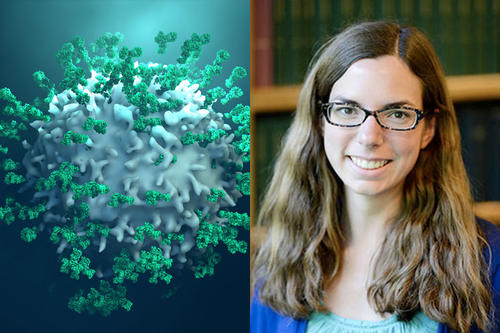
A recent study published in the journal Nature Immunology provides information that can be used to develop new immunotherapies with the potential to treat all cancer patients.
Rachel Johnson, an assistant professor of biology at the University of Minnesota Morris, is available to comment on what these new findings could mean for cancer patients and U of M research to fight cancer in Minnesota.
Rachel Johnson, Ph.D.
What are immunotherapies for cancer?
The human immune system, in addition to protecting a person from infectious diseases, also protects against the growth of cancer. When a patient is diagnosed with cancer, it is in part due to a failure of their immune system to detect and destroy the cancer cells, resulting in the growth of a tumor. Since the immune system helps protect against the growth of cancer, utilizing its power and specificity to kill cancer cells is an effective cancer treatment. New tumor immunotherapies work by giving a cancer patient’s immune system a boost so the immune cells are able to kill the cancer cells.
What is the new discovery?
Current immunotherapies are often designed to work for a particular type of cancer, and some need to be generated using the patient’s own immune cells. What is so exciting about these new findings is the researchers discovered a certain type of immune cell, called a T cell, that was able to kill every type of cancer cell that was tested. And these newly identified T cells, called MC.7.G5 cells, did not kill any non-cancer cells that were tested.
What could these new findings mean for cancer patients?
This publication provides new information about T cells that researchers around the world will be able to use in the development of new immunotherapies. With the identification of the MC.7.G5 cells, it now is easy to imagine an immunotherapy that could work in all patients and for all types of cancer, in the near future. There is still a lot to learn about MC.7.G5 cells and their applications, but this marks a major advance in the field of tumor immunotherapy.
What types of research are underway at the U of M to fight cancer in Minnesota?
My research is on proteins that regulate the interactions between T cells and cancer cells. I study a molecule that allows tumor cells to dampen the killing activity of T cells. There are several immunotherapies, called checkpoint blockade therapies, that target these molecules to enhance the ability of T cells to kill cancer cells. These checkpoint blockade therapies could be used in combination with MC.7.G5 cells to enhance their cancer-killing ability.
Rachel Johnson holds a Ph.D. in immunology from the Mayo Graduate School and a B.A. in biochemistry and molecular biology from Boston University. She is a Masonic Cancer Center member. Her areas of expertise include immunology, cancer biology, and molecular biology.
- Categories:
- Health




